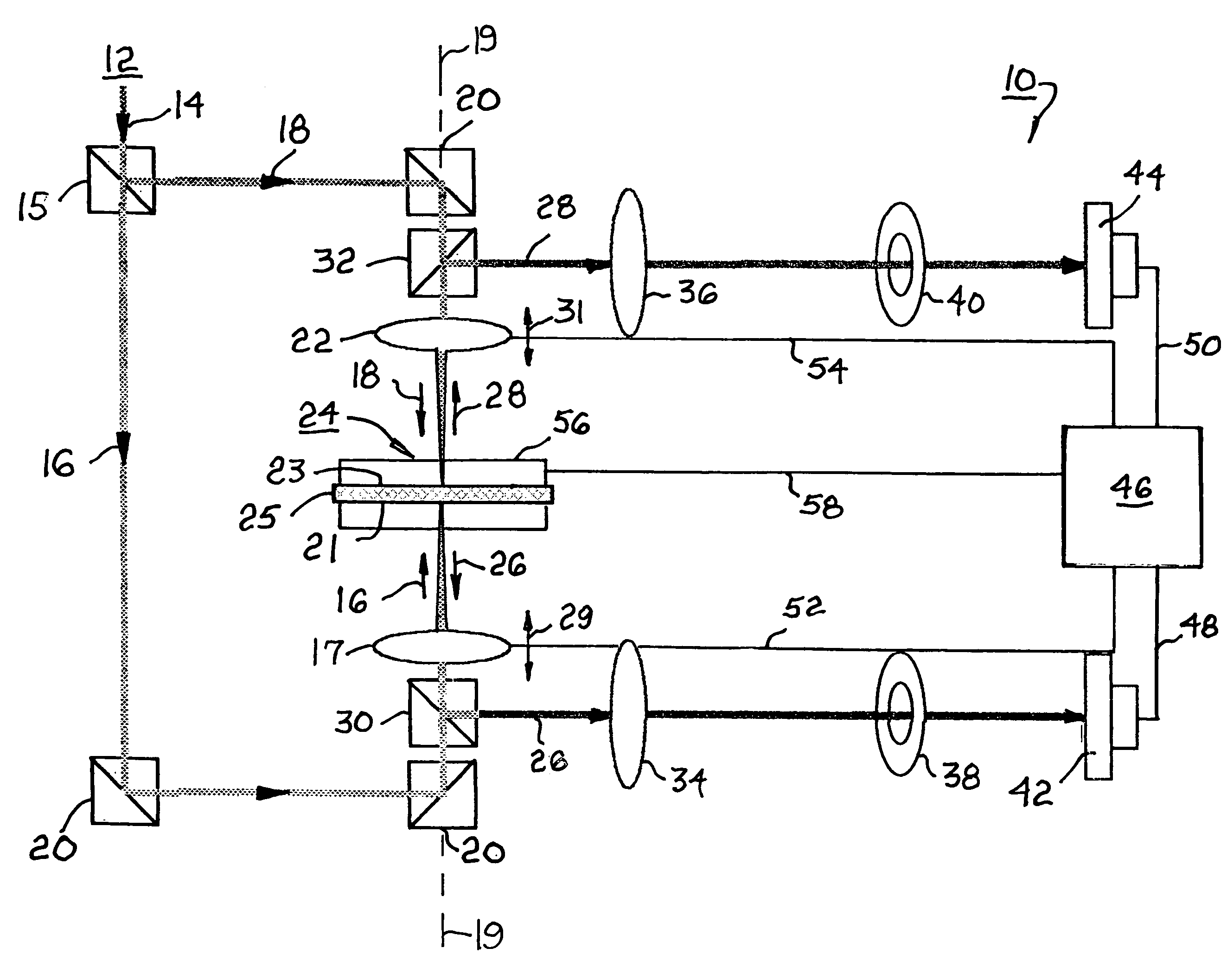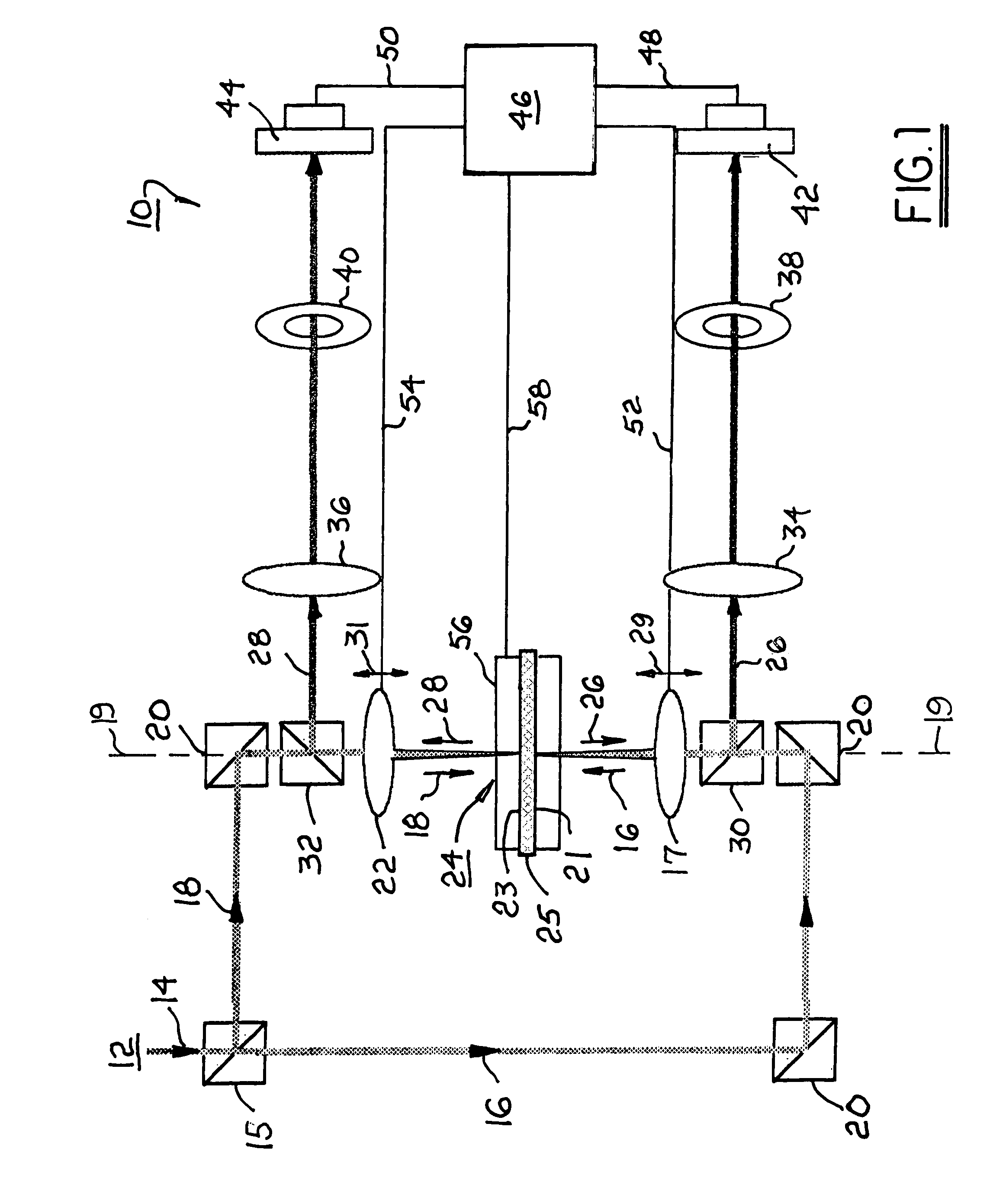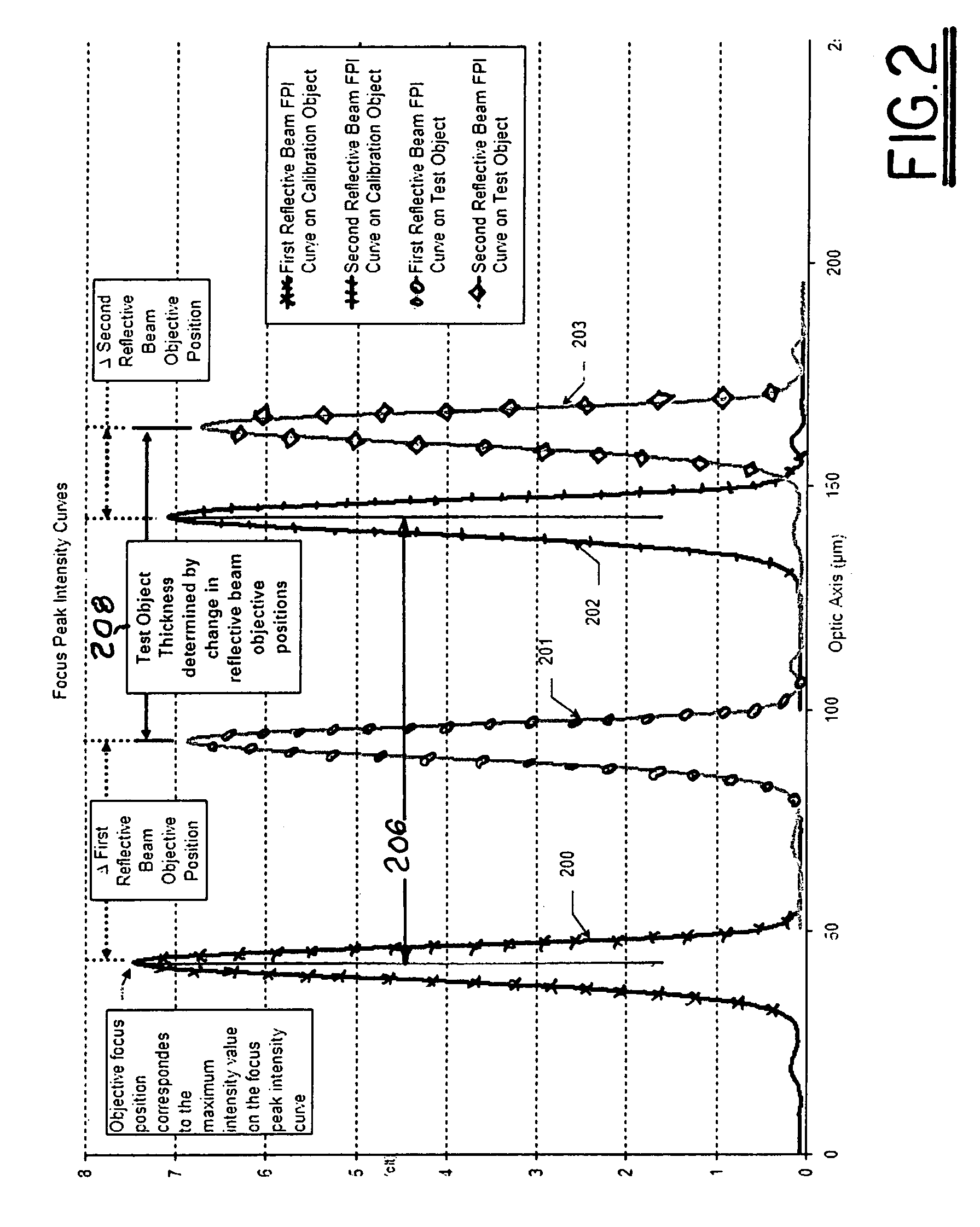Method and apparatus for measuring wafer thickness
a technology of wafer thickness and measurement method, applied in the direction of measuring device, using optical means, instruments, etc., can solve the problems that prior art systems with relatively large optical focus spots are not suitable for bump wafer analysis, and achieve the effects of small focused spots, high degree of resolution, and easy measuremen
- Summary
- Abstract
- Description
- Claims
- Application Information
AI Technical Summary
Benefits of technology
Problems solved by technology
Method used
Image
Examples
Embodiment Construction
[0018]Referring to FIG. 1, a non-contact thickness measurement system 10 in accordance with the invention includes a light-generating source 12 capable of producing a master beam 14. Beam 14 may be incoherent but preferably is a laser beam. A first beam splitter 15 divides master beam 14 into first and second input beams 16,18 which preferably are substantially identical in intensity. Angled mirrors 20 turn beams 16,18 such that they are in opposition along an optic axis 19. First and second focusing means 17,22 are provided for focusing input beams 16,18 independently in a space 24 between focusing means 17 and 22. Focusing means 17,22 are independently movable 29,31 along optic axis 19 to vary the axial positions of their respective focal points within space 24. When reflective surfaces 21,23 of a test object 25 are placed in space 24, first and second reflective beams 26,28 from surfaces 21,23 are turned by half-mirrors 30,32, respectively, to direct reflective beams 26,28 throug...
PUM
 Login to View More
Login to View More Abstract
Description
Claims
Application Information
 Login to View More
Login to View More - R&D
- Intellectual Property
- Life Sciences
- Materials
- Tech Scout
- Unparalleled Data Quality
- Higher Quality Content
- 60% Fewer Hallucinations
Browse by: Latest US Patents, China's latest patents, Technical Efficacy Thesaurus, Application Domain, Technology Topic, Popular Technical Reports.
© 2025 PatSnap. All rights reserved.Legal|Privacy policy|Modern Slavery Act Transparency Statement|Sitemap|About US| Contact US: help@patsnap.com



